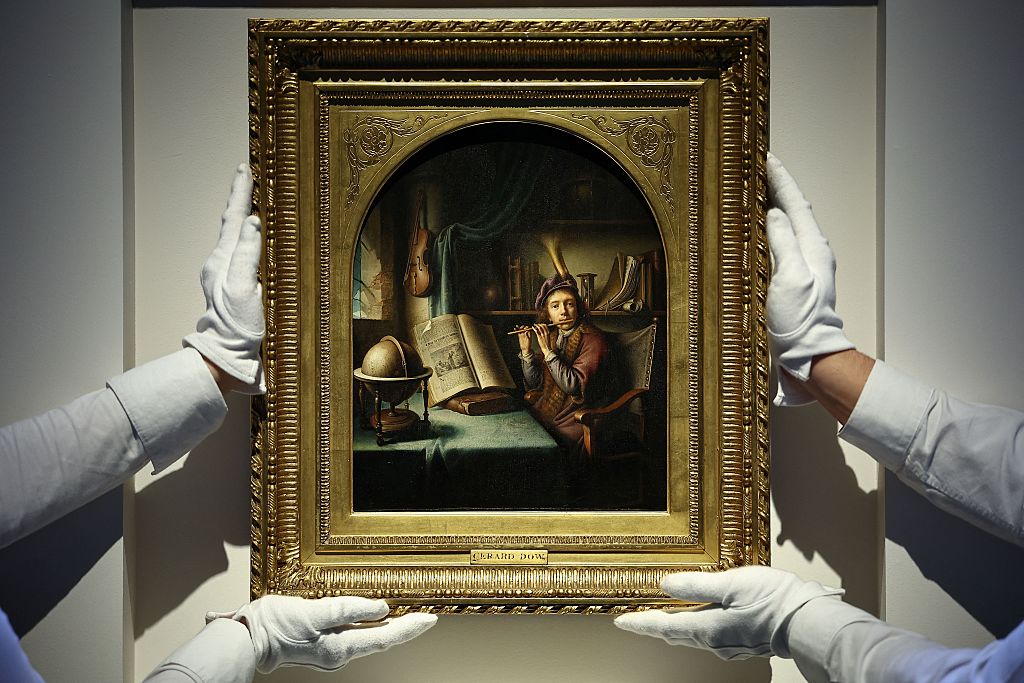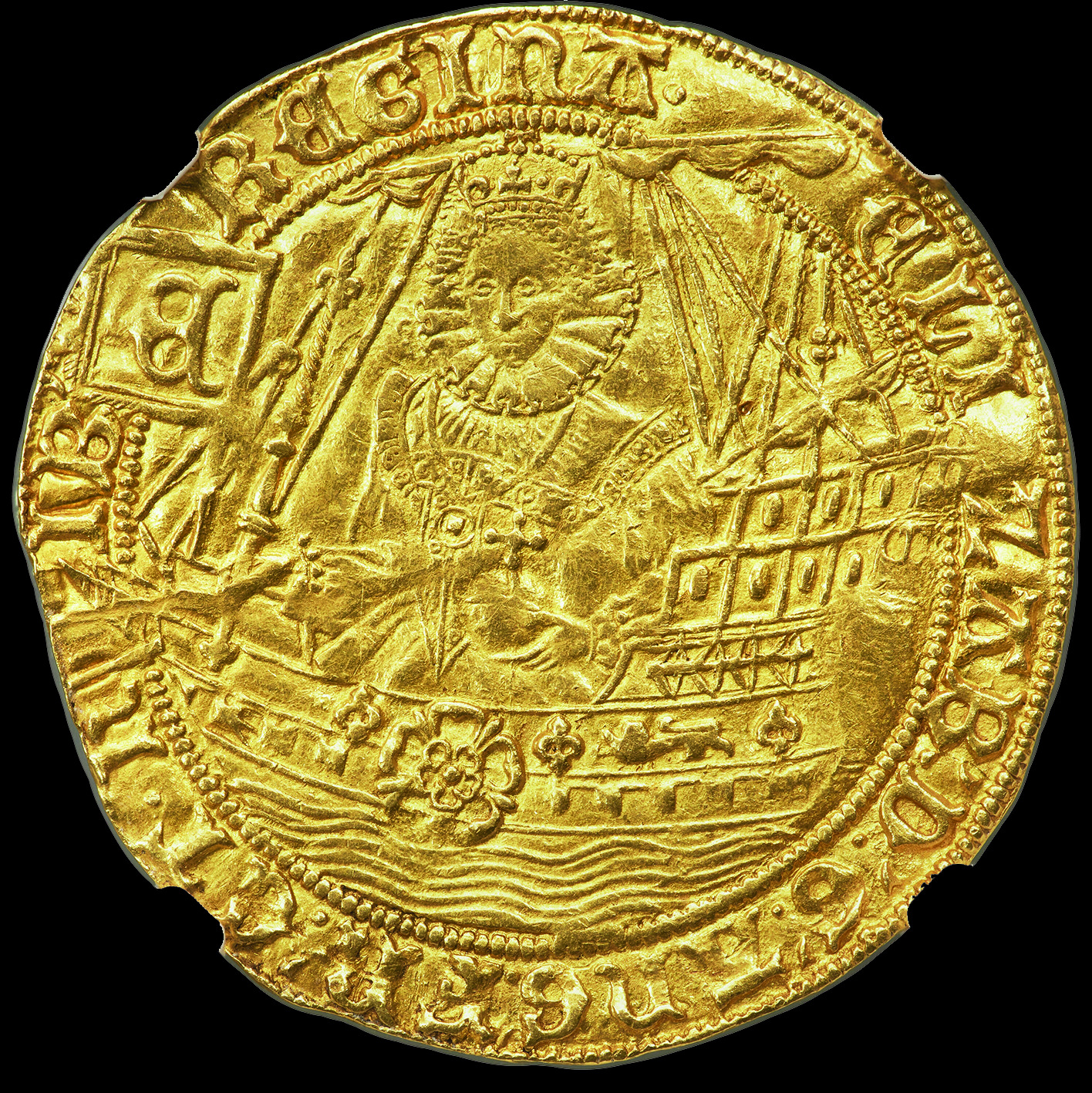Take a look under the bonnet of the classic car market
Dearer money has taken the momentum out of the classic car market, says Chris Carter


Get the latest financial news, insights and expert analysis from our award-winning MoneyWeek team, to help you understand what really matters when it comes to your finances.
You are now subscribed
Your newsletter sign-up was successful
Want to add more newsletters?

Twice daily
MoneyWeek
Get the latest financial news, insights and expert analysis from our award-winning MoneyWeek team, to help you understand what really matters when it comes to your finances.

Four times a week
Look After My Bills
Sign up to our free money-saving newsletter, filled with the latest news and expert advice to help you find the best tips and deals for managing your bills. Start saving today!
It might be going too far to say the wheels have come off the market in classic cars. But prices have definitely stalled. Take the Blue Chip index compiled by specialist insurer Hagerty, for example. It tracks the prices of 25 of the most sought-after collectable vehicles of the post-war era. In the decade to January 2025, the index rose 5.5%. But in the six years before 2015 – that is, from the start of the ultra-low interest rate era – the index jumped 118%. So we can take a good guess at what got prices motoring and, by extension, what has put the brakes back on.
Since January 2022, roughly corresponding to when the Bank of England picked interest rates up off the floor (0.1%), the index has only managed a 2.6% rise, lagging the annual rate of consumer-price inflation, which averaged 6.3% in that three-year period. It should come as scant surprise, then, that in the 12 months to the start of 2025, the index contracted 2%. A considerable amount of froth continues to come off the market.
But that is to paint a picture using a very broad brush. Collectables markets are notoriously hard to track because, for starters, no two Ferrari 250 GTOs are exactly the same. There are also so many different makes and models of collectable cars that it would be impossible to follow them all – hence the Blue Chip index limiting itself to 25, for example.
MoneyWeek
Subscribe to MoneyWeek today and get your first six magazine issues absolutely FREE

Sign up to Money Morning
Don't miss the latest investment and personal finances news, market analysis, plus money-saving tips with our free twice-daily newsletter
Don't miss the latest investment and personal finances news, market analysis, plus money-saving tips with our free twice-daily newsletter
The sample size, the number of sales in a given year, is likely to be small, and within the components that make up the index, you are bound to have a relatively wide range of performances. One model might appreciate greatly, only for that performance to be obscured by the other 24.
The classic car market is for choosy collectors
If we look under the bonnet of Hagerty’s Blue Chip index, we see that the value of a 1958 Bentley S1 Continental DHC in “excellent condition” (all the cars ranked in the indices are rated “excellent”, the second highest of four categories) slipped 19% over the course of 2024. Today, you could expect one to fetch approximately $850,000. Likewise, you could have anticipated paying $2.6 million for a 1970 Plymouth Hemi Cuda convertible in January, a 15% discount to the price a year earlier.
But for a 1971 Lamborghini Miura SV, you would have had to pay a third more than in January 2024: $4 million. So collectors buying a classic car as an investment need to be particularly picky as to which model they buy – and that is before storage, maintenance and insurance costs are taken into account.
Some car indices have managed to eke out a gain over the year to January. Hagerty’s Supercar index rose 2%, led by the 1994-1998 McLaren F1, whose value rose 5% to $25.4 million. And post-war German collectible cars were worth 1% more than a year earlier, with the price of a 1979 Porsche 911 Turbo Carrera coupe accelerating 19% to $185,000. But of Hagerty’s 11 indices, seven declined and one trod water. American muscle cars depreciated 10% over the year, and the Ferrari index slid 9%.
Nevertheless, a 1962 Ferrari 250 GTO Berlinetta (not included in the Ferrari index) became the most expensive car sold at auction in 2024, when one example sold with Bonhams for $38.1 million last August. In fact, seven of the ten most expensive cars ever sold at auction (going back to 2014) are Ferraris. These may be extreme, ultra-rare examples, but clearly Ferraris are still very much in demand. The fact that the prancing horse has its own index rather underscores the point, so a pinch of salt is needed.
The rarest cars continue to fetch stratospheric prices. In February, a 1954 Mercedes-Benz W 196 R Streamliner joined that top-ten list in second position, when it sold for €51.2 million. But this is the rarefied region of the market, which by and large, and in keeping with other collectable assets, such as blue-chip artworks, tends to be oblivious to whatever else is going on in the economy.
As for the “collector car” market overall, it “has been uneven for the past several years, with auctions recording lower average prices and private sales activity slowing”, says Brian Rabold of Hagerty. So choose what you buy carefully, and buy it because, first and foremost, you like it.
Classic cars sold privately in Britain tend to be “sold as seen” and there is “little [legal] protection for any purchaser”, says David Stedman, a lawyer specialising in classic cars at law firm Clarke Willmott LLP. If buying from a dealer, your statutory rights are set out in the Consumer Rights Act. Cars first registered more than 40 years ago are exempt from MOT tests, so if you intend to drive your classic car regularly on public roads, make this clear to the seller.
A classic car could be advertised as a “collector’s piece”, in which case the car cannot be expected to be road-ready. Courts will also consider how much was paid for the car, with the understanding that “a purchaser paying less for a restoration project cannot have expected the vehicle to live up to ‘concours standard’,” says Stedman. So, state your intended use for the classic car to the seller and inspect it before you buy it “with your mechanic present”.
This article was first published in MoneyWeek's magazine. Enjoy exclusive early access to news, opinion and analysis from our team of financial experts with a MoneyWeek subscription.
Get the latest financial news, insights and expert analysis from our award-winning MoneyWeek team, to help you understand what really matters when it comes to your finances.

-
 Should you buy an active ETF?
Should you buy an active ETF?ETFs are often mischaracterised as passive products, but they can be a convenient way to add active management to your portfolio
-
 Power up your pension before 5 April – easy ways to save before the tax year end
Power up your pension before 5 April – easy ways to save before the tax year endWith the end of the tax year looming, pension savers currently have a window to review and maximise what’s going into their retirement funds – we look at how
-
 Affordable Art Fair: The art fair for beginners
Affordable Art Fair: The art fair for beginnersChris Carter talks to the Affordable Art Fair’s Hugo Barclay about how to start collecting art, the dos and don’ts, and more
-
 Fine-art market sees buyers return
Fine-art market sees buyers returnWealthy bidders returned to the fine-art market last summer, amid rising demand from younger buyers. What does this mean for 2026?
-
 Luana Lopes Lara: The ballerina who made a billion from prediction markets
Luana Lopes Lara: The ballerina who made a billion from prediction marketsLuana Lopes Lara trained at the Bolshoi, but hung up her ballet shoes when she had the idea of setting up a business in the prediction markets. That paid off
-
 The best gifts for your loved ones
The best gifts for your loved onesWe round up the best gifts with a touch of luxury to delight, surprise and amaze your loved ones
-
 Where to look for Christmas gifts for collectors
Where to look for Christmas gifts for collectors“Buy now” marketplaces are rich hunting grounds when it comes to buying Christmas gifts for collectors, says Chris Carter
-
 How dinosaur fossils became collectables for the mega-rich
How dinosaur fossils became collectables for the mega-richDinosaur fossils are prized like blue-chip artworks and are even accelerating past the prices of many Old Masters paintings, says Chris Carter
-
 Two of Britain's rarest gold coins
Two of Britain's rarest gold coinsGold coins from Britain are sought after by collectors around the world, says Chris Carter
-
 Albert Einstein's first violin sells for £860,000 at auction
Albert Einstein's first violin sells for £860,000 at auctionAlbert Einstein left his first violin behind as he escaped Nazi Germany. Last week, it became the most expensive instrument not owned by a concert violinist